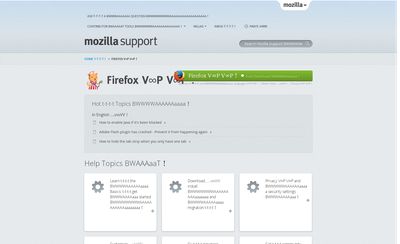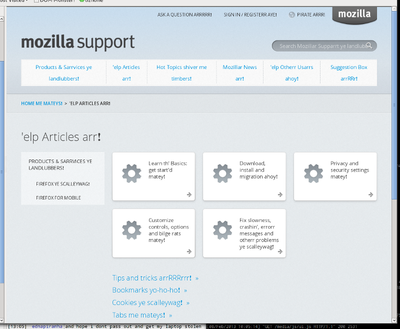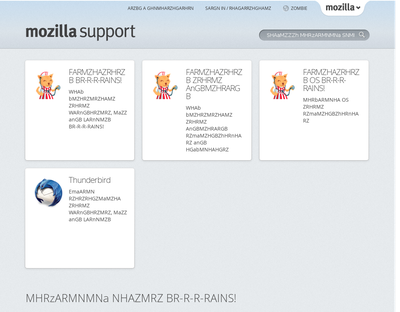Volunteer Responsibility Amnesty Day: 06-2022
Summary
Back in June, I saw a note about Volunteer Responsibility Amnesty Day in Sumana's Changeset Consulting newsletter. The idea of it really struck a chord with me. I wondered whether running an event like this at work would help. With that, I coordinated an event, ran it, and this is the blog post summarizing how it went.
The context
As people leave Mozilla, the libraries, processes, services, and other responsibilities (hidden and visible) all suddenly become unowned. In some cases, these things get passed to teams and individuals and there's a clear handoff. In a lot of cases, stuff just gets dropped on the floor.
Some of these things should remain on the floor--we shouldn't maintain all the things forever. Sometimes things get maintained because of inertia rather than actual need. Letting these drop and decay over time is fine.
Some of these things turn out to be critical cogs in the machinations of complex systems. Letting these drop and decay over time can sometimes lead to a huge emergency involving a lot of unscheduled scrambling to fix. That's bad. No one likes that.
In the last year, I had picked up a bunch of stuff from people who had left and it was increasingly hard to juggle it all. Thus taking a day to audit all the things on my plate and figuring out which ones I don't want to do anymore seemed really helpful.
Further, even without people leaving, new projects show up, pipelines are added, new services are stood up--there's more stuff running and more stuff to do to keep it all running.
Thus I wondered, what if other people in Data Org at Mozilla had similar issues? What if there were tasks and responsibilities that we had accumulated over the years that, if we stepped back and looked at them, didn't really need to be done anymore? What if there were people who had too many things on their plate and people who had a lot of space? Maybe an audit would surface this and let us collectively shuffle some things around.
Setting it up
In that context, I decided to coordinate a Volunteer Responsibility Amnesty Day for Data Org.
I decided to structure it a little differently because I wanted to run something that people could participate in regardless of what time zone they were in. I wanted it to produce an output that individuals could talk with their managers about--something they could use to take stock of where things were at, surface work individuals were doing that managers may not know about, and provide a punch list of actions to fix any problems that came up.
I threw together a Google doc that summarized the goals, provided a template for the audit, and included a next steps which were pretty much tell us on Slack and bring it up with your manager in your next 1:1. Here's the doc:
https://docs.google.com/document/d/19NF69uavGXii_DEkRpQsJuklHxWoPTWwxBp_ucRela4/edit#
I talked to my manager about it. I mentioned it in meetings and in various channels on Slack.
On the actual day, I posted a few reminders in Slack.
How'd it go?
I figured it was worth doing once. Maybe it would be helpful? Maybe not? Maybe it helps us reduce the amount of stuff we're doing solely for inertia purposes?
I didn't get a lot of signal about how it went, though.
I know chutten participated and the audit was helpful for him. He has a ton of stuff on his plate.
I know Jan-Erik participated. I don't know if it was helpful for him.
I heard that Alessio decided to do this with his team every 6 months or so.
While I did organize the event, I actually didn't participate. I forget what happened, but something came up and I was bogged down with that.
That's about all I know. I think there are specific people who have a lot of stuff on their plate and this was helpful, but generally either people didn't participate (Maybe they were bogged down like me? Maybe they don't have much they're juggling?) or I never found out they participated.
Epilog
I think it was useful to do. It was a very low-effort experiment to see if something like this would be helpful. If it was the case that people had a lot on their plates, seems like this would have surfaced a bunch of things allowing us to improve peoples' work lives. I think for specific people who have a lot on their plate, it was a helpful exercise.
I didn't get enough signal to make me want to spend the time to run it again in December.
Given that:
Ift think it's good to run individually. If you're feeling overwhelmed with stuff, an audit is a great place to start figuring out how to fix that.
It might be good to run in a small team as an excercise in taking stock of what's going on and rebalance things.
It's probably not helpful to run in an org where maybe it ends up being more bookkeeping work than it's worth.


